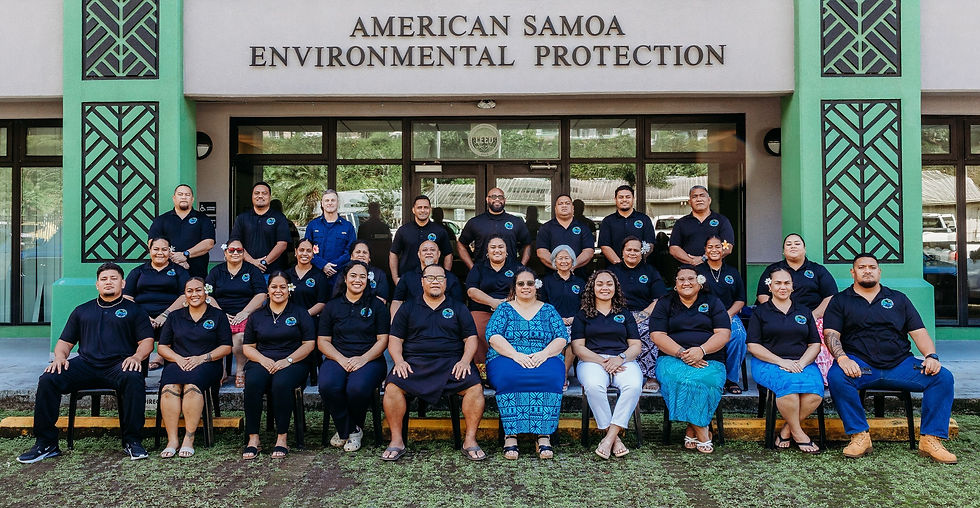American Samoa's Updated Pesticide Law Takes Effect February 4, 2025
- AS-EPA
- Feb 12, 2025
- 2 min read

January 23, 2025
On February 4, 2025, American Samoa’s newly updated Pesticide Act will take
effect. Recorded as Public Law 38-23, this new legislation was passed by the
38th Legislature of American Samoa and signed into law by Governor Lemanu
P.S. Mauga in December 2024. Once effective, it will become part of the
American Samoa Code Annotated, Title 24, Chapter 12.
It has been 46 years since the original American Samoa Pesticide Act of 1979
was enacted. According to the American Samoa Environmental Protection
Agency (AS-EPA), an update was necessary to bring the Territory in line with
modern advances in pesticide technology and to regulate increased pesticide
use. Public Law 38-23 now provides significant updates to the original Pesticide
Act and achieves three main goals.
First, Public Law 38-23 codifies AS-EPA’s authority to regulate pesticides in the
Territory. Under the original law, the American Samoa Department of
Agriculture was responsible for pesticide regulation, but this authority has been
delegated to AS-EPA since 1987, via executive orders and agreements. Today,
the AS-EPA works to ensure the Territory’s compliance with the Federal
Insecticide, Fungicide, and Rodenticide Act (FIFRA) (7 U.S.C. 136 et seq.) and
the federal regulations codified under 40 CFR 171. AS-EPA also serves as the
State Lead Agency for the certification of pesticide applicators in American
Samoa, and provides support for pesticide applicator training conducted by the
Cooperative Extension Service offered through the American Samoa
Community College. Under Public Law 38-23, AS-EPA’s authority to enforce
the pesticide laws of American Samoa is now clearly defined by statute.
Second, Public Law 38-23 updates local certification requirements for pesticide
applicators. These updates comply with mandatory federal requirements and
promote safe pesticide use in the Territory. Examples of the new certification
requirements include establishing a minimum age of 18 for private and
commercial applicators, and clearly defining the AS-EPA Director’s authority to
deny, suspend, revoke or modify a pesticide applicator’s certification.
Finally, Public Law 38-23 strengthens AS-EPA’s enforcement of pesticide laws
in the Territory. Pesticide technology has changed drastically since the Pesticide
Act was first adopted in 1979. With the increase of commercial farming over the
last decade, there has been an increase in illegal pesticides being imported into
the Territory. To be legal, a pesticide must be registered with the US EPA. AS-
EPA has also seen the repeated misuse of legal pesticides. To combat these
violations, Public Law 38-23 adds more tools to AS-EPA’s enforcement arsenal,
including: citations (AS-EPA may now cite a violator on the spot and set a
hearing date before the court); seizures (provides a framework for government
seizure of illegal pesticides); and penalties (updated civil and criminal penalties
ranging from $500 to $1,000 per violation).
Per AS-EPA Acting Director Edna Asalele Noga, “Public Law 38-23 provides a
much-needed update to the Territory’s pesticide framework. The new law
defines AS-EPA’s authority to regulate pesticides, brings the Territory into
compliance with federal certification standards, and strengthens pesticide
enforcement. This is critical legislation that will greatly benefit the human and
environmental health of our community.”
For more information on Public Law 38-23 or to report a pesticides violation,
please contact AS-EPA at 633-2304.






Comments